Individuals with dual diagnosis face a unique set of challenges. The symptoms of each condition can complicate diagnosis and treatment.
For instance, someone struggling with depression and alcohol abuse might exhibit low mood and insomnia. These could be symptoms of either condition. Overlapping symptoms make it difficult to pinpoint the cause.
Co-occurring disorders also require integrated care. This involves a team of health care professionals in multiple specialties.
Because of these complexities, a specialized approach is necessary. Programs not set up to treat co-occurring disorders may struggle to achieve lasting results.
Integrated care in outpatient treatment for co-occurring disorders can involve:
Skyline Recovery Center provides comprehensive care to empower people with co-occurring disorders. We help them achieve lasting healing and build a brighter future.
At Skyline Recovery Center, we understand that co-occurring disorders need a specialized approach. Here is how we ensure our clients receive the care they need:
Our team consists of the following qualified health care professionals:
These professionals have relevant certifications and stay current on the latest medical advancements. This ensures that clients receive the most effective care.
We also work closely with other health care providers and facilities. This collaboration allows us to provide the best care tailored to each client’s needs.
A key part of the Skyline approach is conducting thorough assessments to identify and treat dual diagnosis. The goal is to gather a complete picture of each person’s mental health and substance use history.
The information collected allows for a more precise diagnosis. It also enables the team to develop a tailored treatment plan that addresses each client’s unique needs.
Here are some examples of what these assessments involve:
By conducting a comprehensive assessment, Skyline Recovery Center can identify the root causes of both substance abuse and mental health conditions. This allows for the development of a truly tailored treatment plan.
There is no one-size-fits-all approach to recovery at Skyline Recovery Center. After the assessment, our team collaborates to make a personalized treatment plan. The plan addresses the specific needs and goals of those with co-occurring disorders.
This plan may include the following:
Skyline Recovery Center also uses many evidence-based therapies. These therapies aim to treat dual diagnosis.
Here’s a closer look at some of these approaches:
CBT helps people identify and change negative thought patterns. These patterns may contribute to both substance abuse and mental health challenges.
For instance, someone struggling with depression and alcohol abuse might learn to challenge their negative thoughts about themselves that have led to cravings for alcohol.
DBT equips individuals with practical skills for:
These skills are beneficial for people with intense emotions or negative ways of coping, like substance abuse.
These groups provide a safe space to:
This sense of belonging and shared journey can benefit those with co-occurring disorders.
The therapist uses supportive conversations to explore the person’s feelings about change. They also help build their motivation to address both issues. This teamwork empowers people to set personal recovery goals and develop healthy coping methods.
Skyline Recovery Center offers alternative therapeutic approaches alongside traditional therapies. These approaches might include:
Following a holistic treatment model can empower individuals with co-occurring disorders. It helps them overcome their challenges and build a life of lasting recovery.
Access to specialized care for individuals with co-occurring disorders is crucial. Many people facing a dual diagnosis struggle to find appropriate treatment due to barriers like cost, location, and lack of awareness.
Ensuring everyone has access to high-quality, integrated care is essential for effective recovery.
Accessible and specialized care programs are essential to ensure effective treatment. Programs like Skyline Recovery Center consider:
By advocating for accessible care, we can help bridge the treatment gap and ensure individuals with co-occurring disorders have the opportunity to heal.
Communities can support those affected by these disorders by promoting understanding. Providing information about treatment options is also crucial. Educational initiatives can help raise awareness.
This can play a vital role in dismantling barriers to care. Educational efforts should aim to:
By educating communities, we can create a supportive environment. People with co-occurring disorders will feel empowered to seek treatment.
Encouraging partnerships is essential. The partnerships should be between treatment providers, mental health organizations, and policymakers.
The goal is to prioritize integrated care for co-occurring conditions. Working together, we can create better treatment programs and policies. These will address the unique needs of people with dual diagnoses.
Advocacy for more funding, research, and legislative support is paramount. It helps ensure that integrated care models are widely used and accessible. Skyline Recovery Center actively participates in such collaborations. We aim to improve the overall care system for those with multiple disorders.
Through collaboration, we can build a healthcare system that meets the complex needs of individuals with co-occurring disorders.
Here are some key features that set Skyline Recovery Center apart:
Our team consists of experienced professionals, including:
This diverse expertise ensures that each patient receives holistic care tailored to their unique needs.
Every client at Skyline Recovery Center undergoes a detailed assessment to develop a personalized treatment plan. These plans integrate evidence-based therapies for both mental health and addiction. This ensures a complete approach to recovery.
Our specialized dual diagnosis programs address the complex relationship between mental health and substance use disorders.
We equip our clients with the skills, resources, and support networks necessary for life after treatment. This helps ensure individuals are prepared to navigate challenges, maintain sobriety, and cultivate a fulfilling life.
Co-occurring disorders are a widespread challenge. However, individuals can achieve lasting recovery with the proper support and resources.
Together, we can make a difference in the lives of those facing co-occurring disorders.



